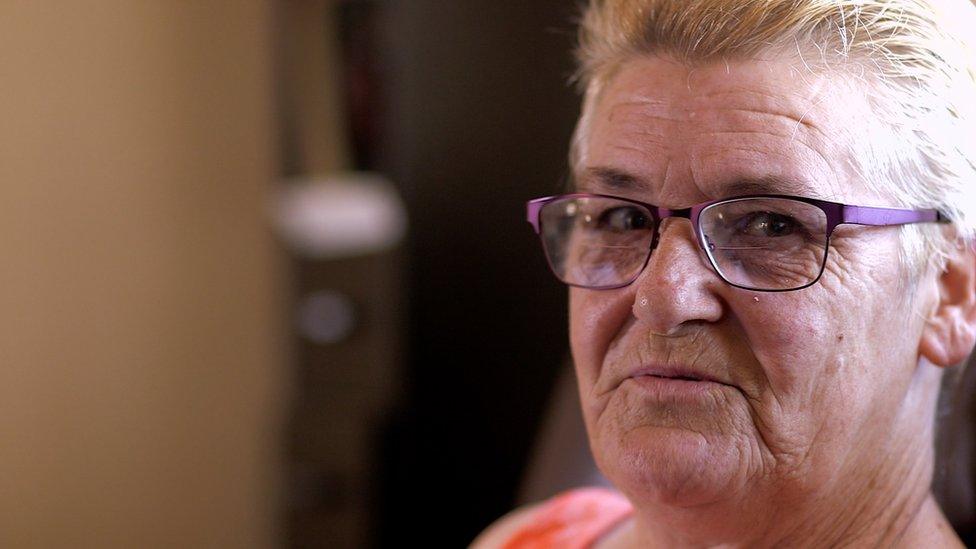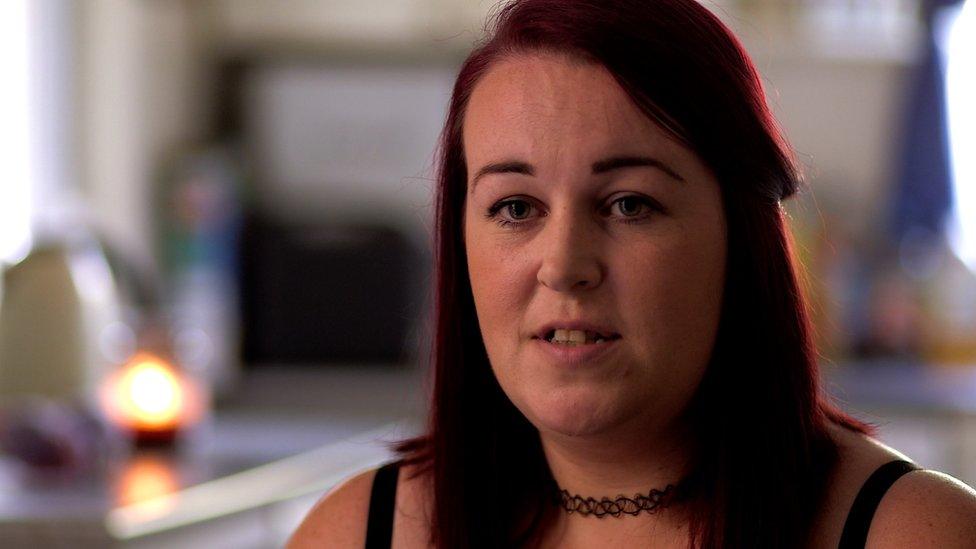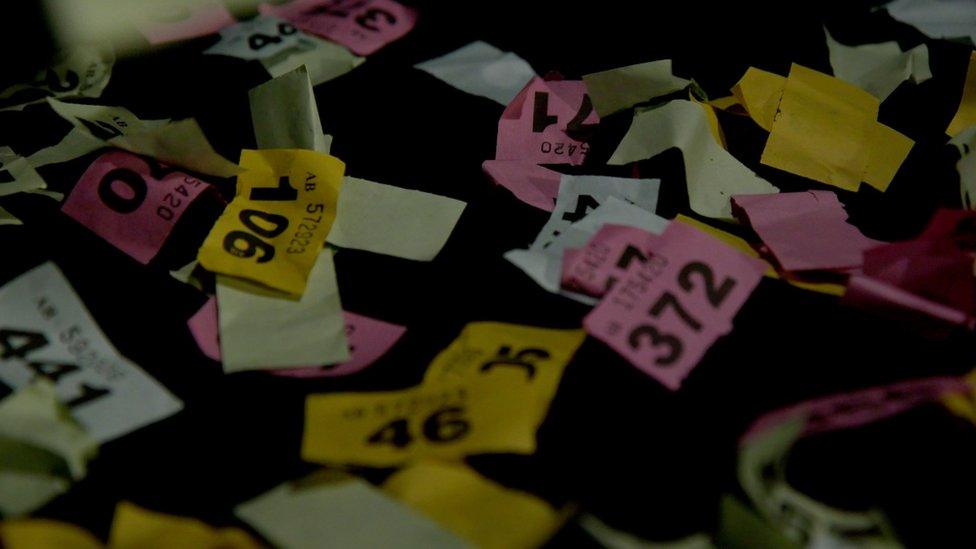The murky world of Facebook raffles
- Published

Maggie Hughes was a member of between 25 and 30 online raffle groups
The number of raffle groups on Facebook has grown rapidly over the last few years, but so have the number of people being scammed.
"It just makes me so angry. [The scammers] keep changing their names and Facebook just let them do it," says Maggie Hughes, who says at one stage she was a member of between 25 and 30 online raffle groups on the social media site.
Anyone can set up a raffle group on Facebook and then begin inviting contacts to join, although Facebook says it shuts down illegal raffle pages - those not licensed by the Gambling Commission - as soon as they are reported.
The page owners then choose a prize, and sell tickets - using PayPal or a bank transfer.
From then on, it works just like a normal raffle. A number is drawn at random and the winner earns a prize.
At least that is how it should work.
'Not receiving prizes'
Maggie became suspicious of one woman online when she says she won some prizes.
"I played her tombola [raffle] and I have not received any prizes from her at all," she says.
Maggie is disabled and her husband has dementia. She says the £40 to £50 she estimates she has lost is a lot of money to her.
"It's very hard, it just upsets me. It makes me angry that this girl is getting away with it."
The woman Maggie says she dealt with, Lauren Brattle, appears to have a number of online aliases.
Her raffles were among the many mentioned on a Facebook page that raises awareness of possible scams.
Ms Brattle says the allegations against her are false and she has not done anything wrong.

Liz Hodgson says the scamming problem is "huge"
The page is moderated by Liz Hodgson, who deals with problem raffles run all over the country.
"[The problem] is huge," she says. "It's so big at the moment. Everybody's creating their own groups.
"There are daily posts in the 10s, of people having issues with admins on these raffle groups.
"They're not drawing them correctly, the [players] aren't receiving their prizes."
'Nasty, selfish, greedy'
Tracie Morgans, a member of Liz's online page, said she knew of one woman who "walked away with £400 worth of people's money" without giving out prizes.
"She was boasting that she was taking her kids on holiday," she adds, having been scammed twice in the past herself.
"There are so many nasty, selfish, greedy, money-hungry idiots," says Karen Evans, also a member of Liz's page. "I didn't realise how rotten the world was."
Karen says she has also been cheated out of money on a raffle group.
"I played a page and I paid for the raffle and all of a sudden the page wasn't there any more. I tried to inbox the girl and she blocked me."
The Gambling Commission, which regulates all gambling activities in the UK, says complaints about social media raffles have been greatly on the rise in recent years.
The prizes on offer, it adds, have included a shotgun, a monkey and a pregnant spaniel.
In order to be legal, online raffles must be licensed by the Gambling Commission.
Facebook says it shuts down raffle pages as soon as they are reported and found to be illegal, and the Gambling Commission says almost all of the raffle groups reported to them are now no longer active.
'Spending their children's money'
For some users, the possibility of being scammed is not the only issue associated with the raffle pages.
It is also the fact they allow people to freely gamble online.
Liz says she "would absolutely say people are becoming addicted".
"Quite a lot of the posts on the scammers group are where people have placed their last £50 or £60 on one raffle.
"And they've got children and they're spending their children's money."

Some raffle groups say they are raising money for charity.
The BBC understands Ms Brattle - the woman Maggie says scammed her - had previously claimed her raffles made money for the Sick Person's Trust, but the charity says it has not received any money from her.
She denies this.
The police told us they are investigating a complaint.
"It's absolutely disgusting that this charity hasn't received a penny," explains Maggie.
But the wider question surrounding raffle groups is - with so many popping up daily - how to stop them.
Watch the BBC's Victoria Derbyshire programme on weekdays between 09:00 and 11:00 on BBC Two and the BBC News Channel.